One Man’s Journey: A Story of Gen. Soleimani’s Dedication and Sacrifice in South Lebanon
The first time the Islamic Revolutionary Guard Corps (IRGC) established contact with Lebanese Shia fighters, which later came to be known as the Hezbollah, dates back to 1982 when the Zionist Army managed to occupy the Lebanese capital Beirut and its suburb after seizing large swathes of territory in southern Lebanon and Bekaa Valley.
In the wake of the Iran-Iraq war, a joint committee gathering heads of IRGC and the Iranian Army convened to study means to assist the Syrian and Lebanese guerrillas who were resisting the Israeli aggression. A group of Iranian fighters arrived in Lebanon, following deliberations with the senior Syrian officials,
The severity of Iraqi aggression against the Iranian nation; made part of Iranian combatants to return to Iran. However, several IRGC fighters stayed behind in Baalbek and Hermel, cementing strong ties with the high-ranking Hezbollah commander like Martyr Seyed Abbas Mousavi and Martyr Imad Mughniyeh.
Haj Qassem Soleimani and the Lebanese Hezbollah
Following his appointment as Commander of IRGC’s Quds Force by Iranian Supreme Leader, Martyr Haj Qassem Soleimani traveled to Lebanon to hold his first meeting with top Hezbollah commanders, as Haj Qassem did not have any connection up to that point with the Lebanese Hezbollah. Since the first impression was vital, that very meeting could shape the future relations between IRGC and the Lebanese resistance. Seyed Hassan Nasrallah, the Secretary-General of Hezbollah, later described that meeting: “we instantly felt that a strong spiritual bond and mutual trust formed between us as if were acquainted with him [Haj Qassem] for ten years. The first impression is highly crucial since it would negatively affect relations. But the first meeting between the Hezbollah officials and Haj Qassem was indeed the harbinger of positive cooperation in the future. This feeling endured until Haj Qassem’s martyrdom “.
Haj Qassem’s brother ties with Hezbollah members
The prestigious position of Gen. Soleimani did not prevent him from building a close rapport with his comrades in Hezbollah. He did not belong to that kind of military commanders who would issue orders from far away; rather he regularly inspected the front lines in southern Lebanon.
Due to his congenial and humble manner, Haj Qassem managed to establish favorable relations with the Hezbollah cadre, especially his personal tie with Martyr Imad Mughniyeh was all but eye-catching.
Haj Qassem’s indispensable role in Hezbollah’s victory
Haj Qassem’s first-hand observations from the front lines made him cognizant of the shortcomings among Hezbollah fighters and also the unique opportunities against the Israeli enemy. Gen. Soleimani had provided the Hezbollah fighters with abundant military supplies and enhanced the training level of Hezbollah combatants by setting up advanced training courses. Following these efforts, the Lebanese resistance operations against the enemy witnessed a rapid improvement in 1999 and 2000, which eventually led to the glorious victory of 2000 against the Zionist regime.
Haj Qassem Soleimani and augmenting Hezbollah’s military capabilities in 33-war against Israel
Following Hezbollah’s spectacular military achievements in 2000, Haj Qassem and Hezbollah’s high-ranking officials concurred with each other that it was the proper time for delivering a tactical boost regarding Hezbollah’s military hardware and fighting equipment. Therefore, with the cooperation of Martyr Haj Qassem Soleimani and Martyr Imad Mughniyeh, the Lebanese resistance missile and drone force were duly established.
In the 33-day war, the Zionist regime destroyed 15,000 houses and wiped out many of Lebanese infrastructures, including power plants, ports, and bridges.
During this critical period, Haj Qassem Soleimani played a chief role in directing and commanding the logistical assistance from Syria and Iran to Hezbollah resistance and also accompanied the Hezbollah forces despite the potential risks entailed by being in the front lines.
0
The first time the Islamic Revolutionary Guard Corps (IRGC) established contact with Lebanese Shia fighters, which later came to be known as the Hezbollah, dates back to 1982 when the Zionist Army managed to occupy the Lebanese capital Beirut and its suburb after seizing large swathes of territory in southern Lebanon and Bekaa Valley.
In the wake of the Iran-Iraq war, a joint committee gathering heads of IRGC and the Iranian Army convened to study means to assist the Syrian and Lebanese guerrillas who were resisting the Israeli aggression. A group of Iranian fighters arrived in Lebanon, following deliberations with the senior Syrian officials,
The severity of Iraqi aggression against the Iranian nation; made part of Iranian combatants to return to Iran. However, several IRGC fighters stayed behind in Baalbek and Hermel, cementing strong ties with the high-ranking Hezbollah commander like Martyr Seyed Abbas Mousavi and Martyr Imad Mughniyeh.
Haj Qassem Soleimani and the Lebanese Hezbollah
Following his appointment as Commander of IRGC’s Quds Force by Iranian Supreme Leader, Martyr Haj Qassem Soleimani traveled to Lebanon to hold his first meeting with top Hezbollah commanders, as Haj Qassem did not have any connection up to that point with the Lebanese Hezbollah. Since the first impression was vital, that very meeting could shape the future relations between IRGC and the Lebanese resistance. Seyed Hassan Nasrallah, the Secretary-General of Hezbollah, later described that meeting: “we instantly felt that a strong spiritual bond and mutual trust formed between us as if were acquainted with him [Haj Qassem] for ten years. The first impression is highly crucial since it would negatively affect relations. But the first meeting between the Hezbollah officials and Haj Qassem was indeed the harbinger of positive cooperation in the future. This feeling endured until Haj Qassem’s martyrdom “.
Haj Qassem’s brother ties with Hezbollah members
The prestigious position of Gen. Soleimani did not prevent him from building a close rapport with his comrades in Hezbollah. He did not belong to that kind of military commanders who would issue orders from far away; rather he regularly inspected the front lines in southern Lebanon.
Due to his congenial and humble manner, Haj Qassem managed to establish favorable relations with the Hezbollah cadre, especially his personal tie with Martyr Imad Mughniyeh was all but eye-catching.
Haj Qassem’s indispensable role in Hezbollah’s victory
Haj Qassem’s first-hand observations from the front lines made him cognizant of the shortcomings among Hezbollah fighters and also the unique opportunities against the Israeli enemy. Gen. Soleimani had provided the Hezbollah fighters with abundant military supplies and enhanced the training level of Hezbollah combatants by setting up advanced training courses. Following these efforts, the Lebanese resistance operations against the enemy witnessed a rapid improvement in 1999 and 2000, which eventually led to the glorious victory of 2000 against the Zionist regime.
Haj Qassem Soleimani and augmenting Hezbollah’s military capabilities in 33-war against Israel
Following Hezbollah’s spectacular military achievements in 2000, Haj Qassem and Hezbollah’s high-ranking officials concurred with each other that it was the proper time for delivering a tactical boost regarding Hezbollah’s military hardware and fighting equipment. Therefore, with the cooperation of Martyr Haj Qassem Soleimani and Martyr Imad Mughniyeh, the Lebanese resistance missile and drone force were duly established.
In the 33-day war, the Zionist regime destroyed 15,000 houses and wiped out many of Lebanese infrastructures, including power plants, ports, and bridges.
During this critical period, Haj Qassem Soleimani played a chief role in directing and commanding the logistical assistance from Syria and Iran to Hezbollah resistance and also accompanied the Hezbollah forces despite the potential risks entailed by being in the front lines.
0
against
aggression
al-Quds
Beirut
cooperation
fake regime
Gaza
Gen. Soleimani
general soleimani
qasem soleimani
Haj Qasem soleimani
Hard revenge
hard revengre
Hezbollah
Imad Mughniyeh
IRAN
iranian
Iranian embassy
Iraq
Iraqi
Iraqi people
Islamic
Israeli
Lebanese
Lebanon
Martyr Soleimani
Palestine
Palestinian
poster soleimani
Qasem Soleimani
Qassem soleimani
Quds
Revolutionary
sacrificed
SaveGaza
Seyed Hassan Nasrallah
Soleimani
Soleymani
Syrian
Syrian Arab
Zionist
Zionist regime

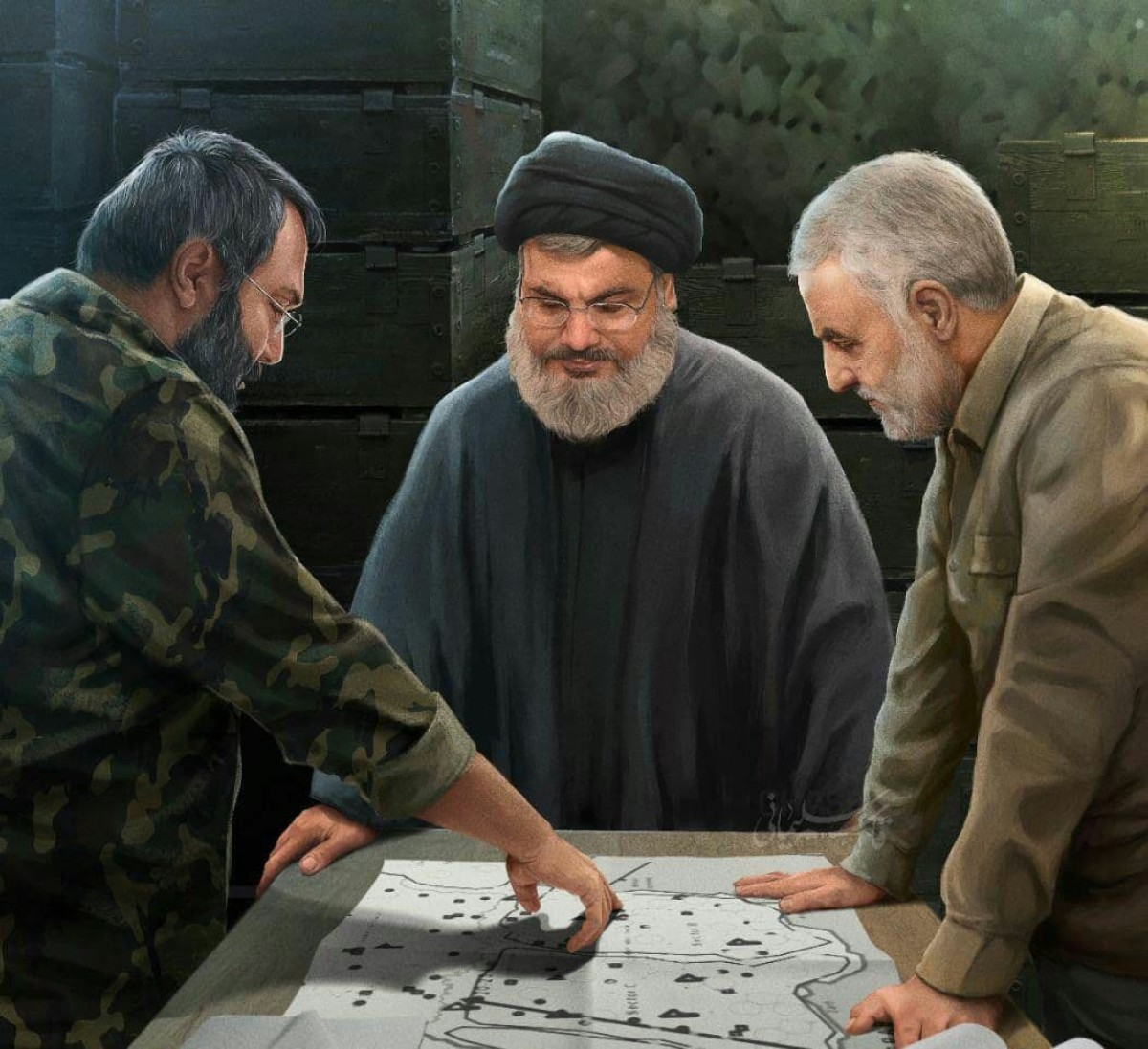
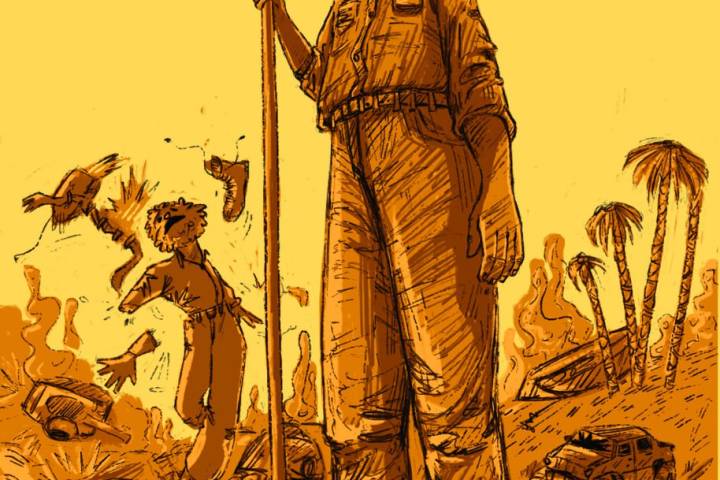
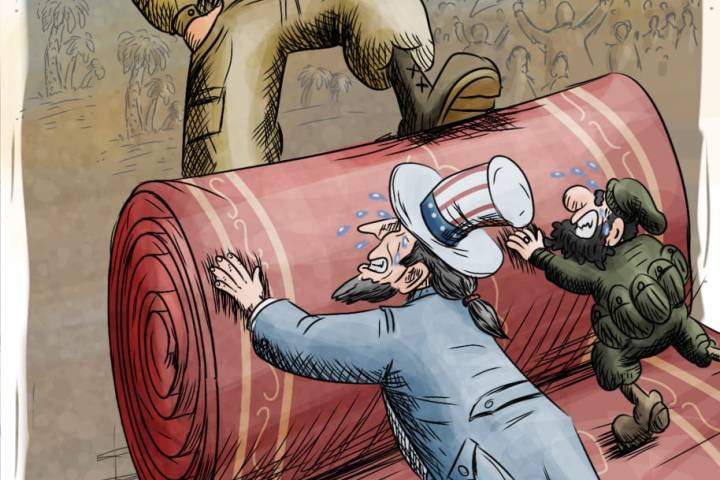
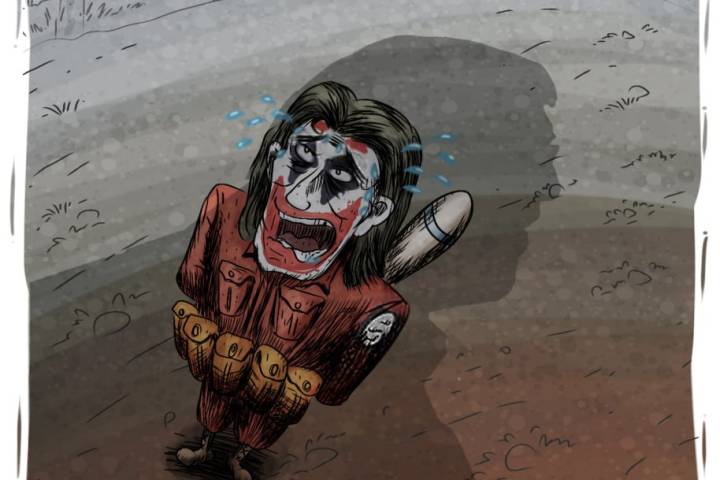
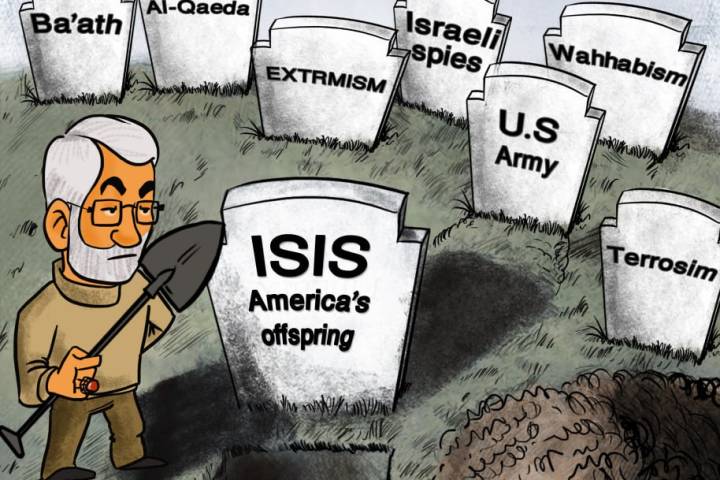
Comment
Post a comment for this article